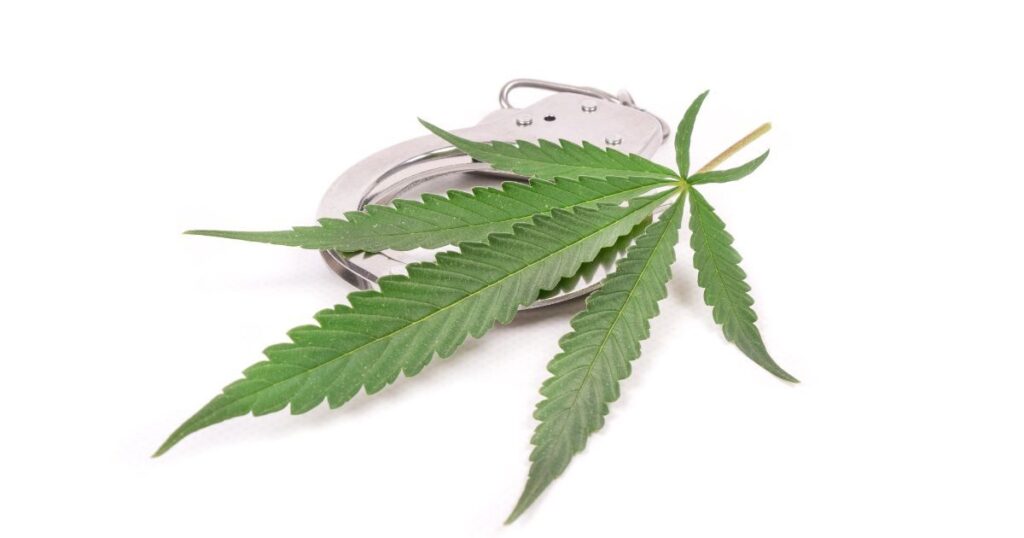Over the past decade, society’s perception of cannabis has undergone a serious shift. What was once considered an illicit substance is now a regulated commodity in many parts of the United States. States are not only legalizing cannabis for medical and recreational purposes but also addressing the lingering impacts of past criminalization. One powerful example of this is Missouri’s marijuana expungement process—an effort that has transformed the lives of thousands of residents and shows the significant strides made in the normalization of cannabis.
What is Missouri Doing About Marijuana Expungements?
Missouri has been addressing the long-standing consequences of cannabis prohibition. After voters approved the 2022 constitutional amendment to legalize recreational cannabis, the state launched a marijuana expungement initiative. The goal? To give individuals with marijuana-related charges a fresh start.
According to a recent article by the Missouri Independent, to date, Missouri courts have expunged over 140,000 marijuana-related cases since 2022 and are nearing the end of the process. This effort touches the lives of thousands who have been burdened by the stigma and limitations of a criminal record, whether through difficulties securing employment, housing, or financial opportunities.
Missouri’s expungement process differs from others as it places the responsibility on the judicial system. Clerks are actively searching through files—some dating back to the 1970s—to identify eligible cases. While the largest counties in the state have completed a majority of the reviews, smaller counties are still chipping away at their lists in a process that is both meticulous and painstaking.
The process hasn’t been without its hurdles. Many older cases are stored as paper records, requiring clerks to physically search through indexes and read summaries before confirming whether a charge qualifies for expungement. While digital systems make sorting easier, the manual work required for these paper records has slowed the process.
Certain counties have made significant progress, but full completion is still months away. Despite the difficulties, Missouri has emerged as a leader in ensuring that past marijuana-related convictions do not haunt individuals in an era where cannabis use is no longer criminalized.
Beyond Missouri Marijuana Expungements, Mass Marijuana Pardons in Maryland
Missouri’s efforts align with a growing trend across the United States to expunge or pardon marijuana-related convictions. For instance, last year in June, Maryland’s Governor Wes Moore issued mass pardons for over 175,000 individuals with misdemeanor marijuana-related convictions earlier this year. This automatically forgave charges for offenses like possession or paraphernalia tied to marijuana use.
Maryland’s approach differed from Missouri’s in that it used an executive action to pardon residents rather than relying on a judicial review for expungement. This allowed the state to act swiftly and reduce barriers for individuals seeking relief. Additionally, Maryland joins states like Colorado, Nevada, Oregon, and Illinois in prioritizing marijuana justice reforms, which highlights a national shift toward repairing the damage caused by decades of prohibition.
While both pardons and expungements offer important relief, they are distinct processes. Pardons, issued by the executive branch such as governors or presidents, serve to forgive past crimes. In contrast, expungements remove and erase crimes from an individual’s record, typically handled through judicial processes like Missouri’s approach.
Both measures are significant tools for recognizing the injustice of past cannabis policies and allowing individuals to reclaim their lives.
Why Marijuana Expungement and Pardons Matter
To understand why expungements and pardons are so critical, we need to assess the toll cannabis prohibition has taken on individuals and communities. For decades, individuals—often from marginalized communities—faced severe penalties for activities now considered legal in many states. Carrying a marijuana-related conviction on your record comes with serious and lasting consequences.
Difficulty securing employment or promotions, barriers to renting housing or obtaining loans, loss of access to educational opportunities, and experiences of social stigma and alienation are all challenges that individuals may face.
One of the most important aspects of mass expungements and pardons is that they help rewrite the narrative surrounding cannabis use. These efforts reinforce the idea that cannabis is no longer a substance deserving heavy criminal penalties but instead a regulated product similar to alcohol or tobacco.
Efforts like Missouri’s signal to society that past drug policies were fundamentally flawed. Addressing these inequities is an essential part of cannabis normalization.
What’s Next for Cannabis Normalization?
The Missouri marijuana expungement and Maryland’s pardons milestones are a positive sign of progress, but there’s still much to be done to repair the damage from the War on Drugs. A few key steps for the future include streamlining processes to make marijuana expungements and pardons more accessible and less burdensome on court systems, particularly for older cases.
Equity programs are also essential to ensure that communities disproportionately affected by cannabis prohibition have access to resources in the legalized market, such as business licenses and reinvestment initiatives.
Additionally, while many states are taking action, federal marijuana convictions still remain on numerous records. A federal effort to expunge or pardon these cases would be a significant step toward achieving justice.
Moving Toward Justice and Acceptance
The efforts in Missouri and Maryland are emblematic of a broader movement to right the wrongs of cannabis prohibition. They reflect a growing consensus that our sense of justice and fairness demands action. Just as Maryland’s governor boldly forgave thousands of convictions, and Missouri combs through decades of records for expungement, all states—and perhaps the federal government—should take note.
At its core, marijuana reform is about more than just cannabis. It’s about acknowledging the shifts in societal understanding and rectifying policies that have caused harm.
For individuals carrying the weight of a past marijuana conviction, these expungements and pardons represent much more than a legal update—they provide hope, freedom, and the opportunity for a better future.















